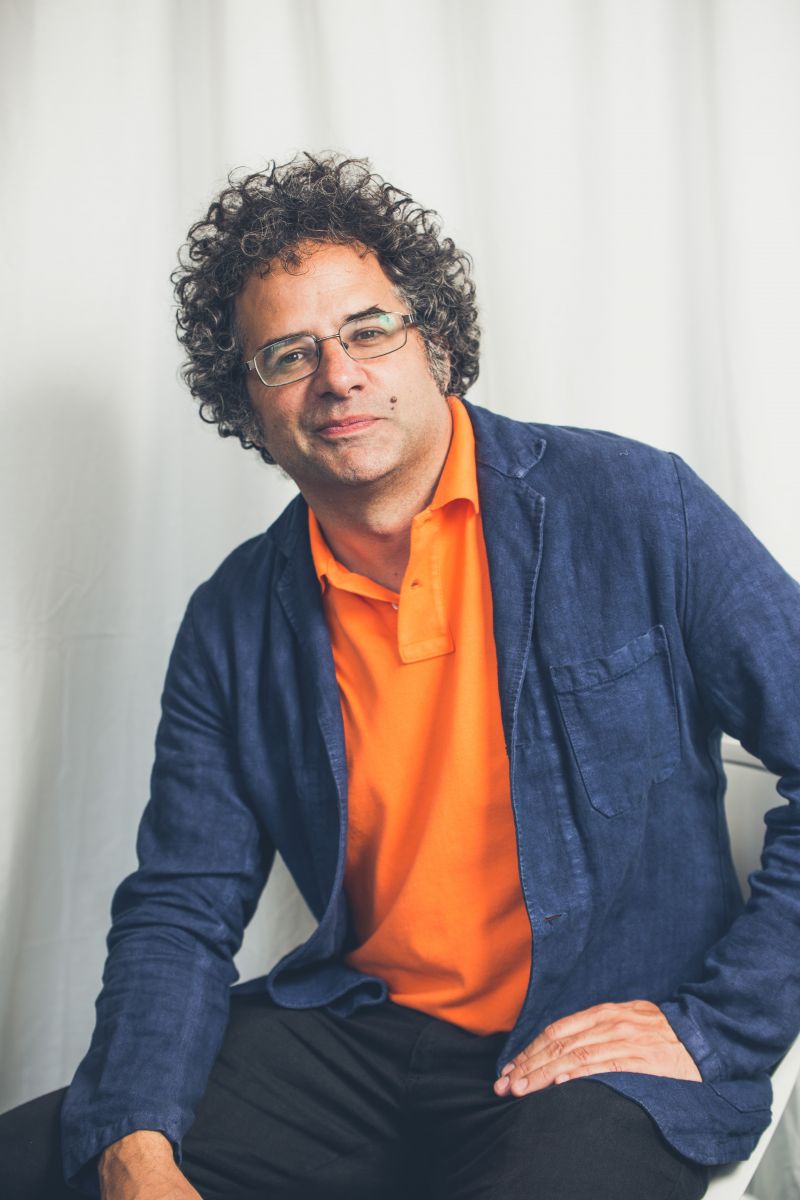You are viewing your 1 free article this month. Login to read more articles.
A frank canvas: From the art world to the top of the Kindle charts
An observer of the Kindle charts over the past few years will have noticed that there is one UK independent publisher consistently competing toe to toe with conglomerates and Amazon’s own publishing divisions at the top of the bestseller lists: Joffe Books.
At this writing, the East London-based digital crime fiction specialist has three books in the Kindle Top 50—led by Joy Ellis’ The Stolen Boys in 14th—which is one better than all of Penguin Random House, two better than Bonnier Books, and within spitting distance of Pan Macmillan and HarperCollins (five entries apiece).
 Not bad for a company which is probably nimbler than even the most agile of its fellow indie publishers—a recent office move "was done in an Uber", says founder Jasper Joffe. The artist-turned-publisher employs freelancers to help on various parts of the business, including agent Lorella Belli to handle foreign rights sales, but he is the only full-timer. Joffe says: "I try to resist saying we’re a small publisher—we’ve had revenue of £3m [since launch in 2014] to the beginning of 2018, which I think is pretty good. But our size is why we can be successful, because everything is integrated. The editing, the design, the blurb on the cover is all me, which all links to the marketing. I set up the Facebook ads, so I know whether the tagline is generating the right cost per click; I know if the cover is appealing to people at the thumbnail level. Other publishers probably have the same data, but often by the time they get it the book is dead. So we are able to react real time."
Not bad for a company which is probably nimbler than even the most agile of its fellow indie publishers—a recent office move "was done in an Uber", says founder Jasper Joffe. The artist-turned-publisher employs freelancers to help on various parts of the business, including agent Lorella Belli to handle foreign rights sales, but he is the only full-timer. Joffe says: "I try to resist saying we’re a small publisher—we’ve had revenue of £3m [since launch in 2014] to the beginning of 2018, which I think is pretty good. But our size is why we can be successful, because everything is integrated. The editing, the design, the blurb on the cover is all me, which all links to the marketing. I set up the Facebook ads, so I know whether the tagline is generating the right cost per click; I know if the cover is appealing to people at the thumbnail level. Other publishers probably have the same data, but often by the time they get it the book is dead. So we are able to react real time."
The model has been working. All told, Joffe Books has shifted nearly five million units worldwide since launch, 2.2 million of which have been sold in 2018. It’s also notched up more than a billion page reads on the Kindle Unlimited subscription service. The last 15 titles it has published have all hit the Kindle UK top 100, and in August 2018 Ellis’ e-book sales passed 1.5 million units.
The last five of Ellis’ Lincolnshire-based police procedural novels have topped the UK Kindle charts. Not bad considering the 71-year-old Ellis turned her hand to writing only after retiring from a long career as a florist—and she was knocked back by 12 traditional publishers before finding a home at Joffe. Its other stars include Helen H Durrant, who has shifted around 700,000 copies of her Calladine & Bayliss and DI Greco series, and Faith Martin, author of the 16-title strong DI Hillary Greene oeuvre.
The DI Greene titles were previously traditionally published, as was Roy Lewis, an author whose 40-book backlist Joffe recently acquired. He saw a digital opportunity for both authors as "first of all they are great writers". But he suggests "[the traditional publishers] screwed up all the marketing. They seemed to publish a book, slap a cover on it and then publish another one regardless of whether it sold. I guess they didn’t have the ability to be reactive to the market."
Painted love
When he was trying to decide where to go to university, Joffe was torn between his two big passions—a rather unusual mix: art and business. Even more unusual was that his mother pushed him towards art. "She said to me, ‘You can always go back to university and be a lawyer or do economics’, but you can never go back to being an artist’."
He did his undergraduate at the Ruskin School of Art in Oxford and a masters at the Royal College of Art, graduating from the latter in 1999. For the succeeding 15 years or so, he made his living as a painter. If you are a contemporary art fan you will undoubtedly have heard of Joffe—his 2008 pastel of Heinrich Himmler was acquired, controversially, by Charles Saatchi; he founded the Free Art Fair with other artists, including Bob and Roberta Smith; and he was the subject of much press in 2009 when he ran an exhibition in which he sold all his belongings after being dumped by his girlfriend. Though "painting is still a passion", he became jaded by the art scene. His switch over to publishing was "organic", he says. "I published
a novel traditionally [2006’s Water] so I knew how the process worked, and a couple of friends and I had self-published some books. I enjoyed it, and started to advertise for authors. The company started from there. There seemed to be a lot of good authors who didn’t quite know how to self-publish, and we could help them."
Joffe Books first hit the market during the agency model period, when many of the big publishers were refraining from pricing e-books low. Joffe says: "The market is changing a bit... During our first growth period it was useful that we were selling books more cheaply than [the conglomerates]. But now you see Penguin selling for 99p, HarperCollins, Hachette too. So we’re now on a reasonably level playing field." So is he worried the big boys are becoming more aggressive? "Not really. I know we can compete. And we can pivot and react fast to the market, maybe in ways they can’t. Honestly, if they cut the price of all their e-books to 29p, they could drive us out of business. But I don’t think they’re going to do that."
Joffe Books does publish titles in print on demand, but digital is the main format. "The authors like p.o.d., Amazon likes it—as it wants as many formats per book as possible—and I like to see the book in my hands," Joffe says. "But it is only about 1% of revenue."
As a mainly digital publisher, then, he has absolutely no truck for the notion the e-book market is stuttering. "If you really look at the overall data, it shows that the e-book market is growing," Joffe argues. "These reports that say the digital market is dying never show data from indie publishers and authors—and they don’t show any Kindle Unlimited [KU] data. We’ve had a billion page reads on KU, and that’s growing. I just don’t understand the glee with which an e-book slowdown seems to be reported. It’s as if some publishers and the media are happy to kill off a part of the market that is still flourishing."
Joffe Books is flourishing, certainly, with the business doubling its turnover every year. Is that likely to continue? "Well, it’s fun to be ambitious," Joffe laughs. "We’ve reached a point... going from 2.8 million units sold by the end of this year to 5.6 million is going to be tougher." One way to boost that is to crack the US market, "which we really haven’t as much as we’d have liked. The US crime market is different to the UK’s. We’re a mostly British list and American readers respond better to home-grown writers, but we are going to try to expand there."
He has no immediate plans to increase the team either, though he may cast around for "one more person a bit like myself". But any growth will be about the talent. Joffe says: "Part of our success is that we’ve cut out all the bits you don’t need any more in modern publishing. But ultimately it all comes down to the pipeline of good authors."









